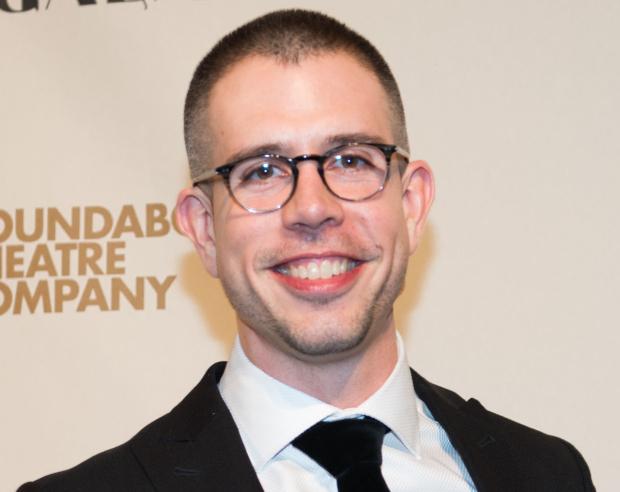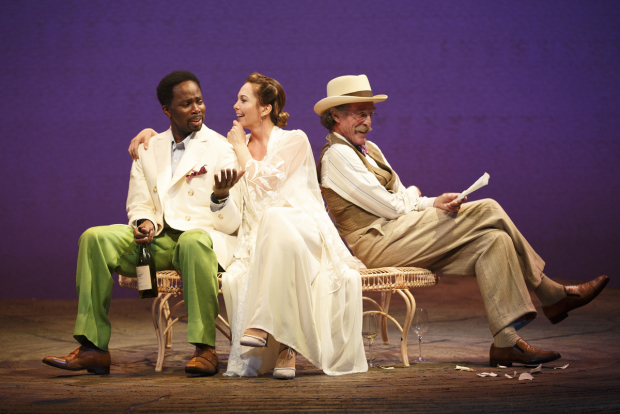Stephen Karam on Giving Chekhov the Last Word in The Cherry Orchard

(© David Gordon)
The Cherry Orchard is timeless.
The play needs no gratuitous updating to remain relevant or accessible to American audiences in 2016, so my goal was clear: to create a version faithful to Chekhov's original; a version that attempts to land the play in modern American ears the way it landed in Russian ears in 1904.
I worked from a literal translation meticulously prepared by Allison Horsley for Roundabout Theatre Company's production. A literal translation provides, predictably, a literal word-for-word translation of Chekhov's original text. Allison's knowledge of Russian culture and her access to Russian scholars was invaluable and gave me access to the sound of the original text in addition to its precise punctuation, rhythms, colloquialisms, etc.
The literal translation revealed some surprises, most notably that — in addition to the play's well-known lyrical passages — Chekhov often composes elliptical passages of dialogue that are wonderfully colloquial. Many of these strange passages are often smoothed over in translations; I tried to honor them. I worked closely with the literal translation to find an unfussy American vernacular to mirror Chekhov's phrasing and language, to closely match his conversational and poetic turns. Beyond that, I had no desire to make the play more "American." In other words, the patronymics are in place, a samovar is still a samovar, a ruble is still a ruble.
Perhaps the most contemporary aspect of the production is not the language, but the fact that our company is diverse. Colorblind casting is now commonplace when it comes to Shakespeare, but Chekhov is still predominantly performed with all-white casts. This is not to say that the discussions surrounding color-conscious versus colorblind casting in classic works are not complex and multilayered, but I do worry that those complexities often cause us to shut down and avoid the conversations entirely. In previews, I've overheard audience members question whether diversity in the work of a Russian writer of such a specific time period disrupts the "authenticity" of the work (perils of playwrights using the bathroom at intermission); to those people I would ask: If you are doing a Russian play in English with actors who are not Russian — are you really preserving a more authentic Russian experience by only casting white Americans?
Like all great works of art, The Cherry Orchard feels modern because of its uncanny ability to hold up a mirror to the way we live now. The story of a Russian family in harsh denial of the change that is knocking on their door is almost comically prophetic at a time when a major American political party is fetishizing our past, feverishly looking back in order to "make America great again." History teaches us that change is inevitable, that the world only spins "forward!" (as Trofimov — and Tony Kushner — might tell us), but that such change comes at a cost; it can be gut-wrenching to face. When Lopakhin utters, "Oh, if only we could move faster through this next part…if only there was some way our awkward, sad lives could change faster…," I'm overwhelmed. Chekhov seems to be reaching across time to help us make sense of our current headlines and ourselves.
Although I started with a clear-eyed objective, the gray area every adapter runs into is perhaps best — or at least most amusingly — embodied by the challenges one faces translating the final word of The Cherry Orchard. No two adapters seem to agree. This is partially because the word, uttered by the old servant, Firs, is nedotyopa, which was not even a Russian word when Chekhov first used it. According to Laurence Senelick, the Chekhovian King of Footnotes: "[Nedotyopa]…was Ukrainian for an incompetent, a mental defective. Chekhov may have remembered hearing it in his childhood; it does not appear in Russian dictionaries until 1938, and then Chekhov is cited as the source."
As such, most adapters focus on mimicking the word's rhythm and sound, others pursue a more etymological route, exploiting potential root-word meanings hidden in the Ukranian slang. Some recent results:
flibberygibbet
good-for-nothing
sillybilly
rogue
ninnynonny
duffer
job-lot
lummox
half-chopped
silly young cuckoo
silly old nothing
nincompoop
muddler
silly galoot
numbskull
young flibbertigibbet
half-baked bungler
you old fool
you pathetic old fool
blunderhead
After much trial and error, and after listening to a native Russian speaker ponder the subtle shadings of meaning of the word in comparison to some of my initial options (options which elicited: "too harsh," "too silly-sounding," "not silly enough," etc.) — and further emboldened by the fact that the word wasn't even formally adopted by Russian culture when Chekhov first used it — I am using the original. I grew too attached to its sound. The entire play belongs to Chekhov, of course, but still, I'm glad the last word is his.

(© Joan Marcus)











